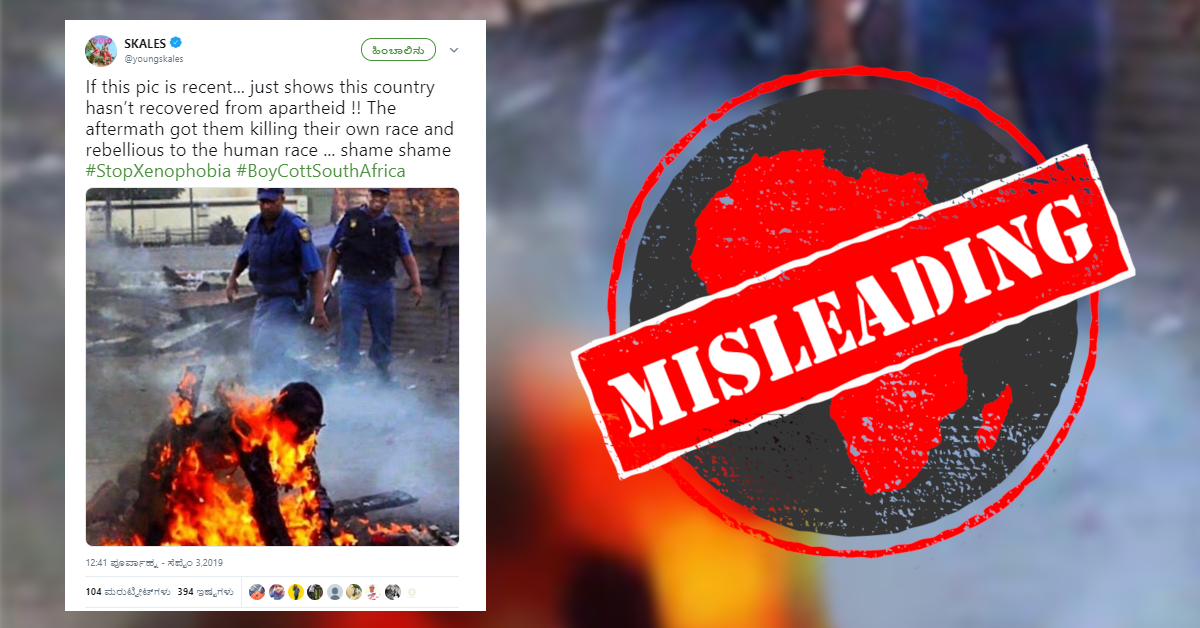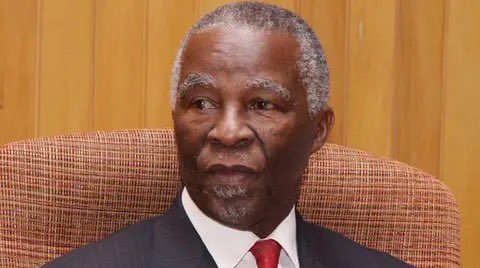Former South African President Thabo Mbeki has reignited a contentious debate by claiming that the xenophobic attacks on Zimbabweans living in South Africa in 2008 were orchestrated by Zimbabwe’s opposition parties.
According to Mbeki, these attacks were not random acts of violence but rather a deliberate strategy aimed at creating political unrest in both Zimbabwe and South Africa.
In 2008, South Africa experienced one of its most violent outbreaks of xenophobic violence, which saw scores of foreign nationals, particularly Zimbabweans, targeted in a wave of brutal attacks.
Homes and businesses were looted, families were displaced, and at least 62 people were killed, many of them Zimbabweans fleeing political and economic turmoil back home.
The violence shocked the world and drew widespread condemnation, painting a grim picture of South Africa’s struggle with its own social and economic challenges.
ALSO READ :South African Freedom Fighters’ Remains to Be Transferred from Zimbabwe

In his statement, Mbeki alleged that Zimbabwe’s opposition parties were behind the xenophobic violence, claiming that their intent was to destabilize the region and undermine the ruling governments in both nations.
Mbeki did not provide specific evidence to support his claims but suggested that the attacks were part of a broader strategy to discredit the Zimbabwean government led by President Robert Mugabe and to create chaos that would spill over into South Africa.
“This was not just about xenophobia,” Mbeki stated. “It was a calculated effort by Zimbabwe’s opposition parties to create unrest. They knew that by causing chaos in South Africa, they could paint Mugabe’s government in a bad light and disrupt our own political landscape.”
The year 2008 was a particularly turbulent period in Zimbabwe’s history. The country was reeling from a severe economic crisis marked by hyperinflation, unemployment, and food shortages.
The political climate was equally volatile, with Mugabe’s ruling ZANU-PF party facing fierce opposition from the Movement for Democratic Change (MDC), led by Morgan Tsvangirai.
The general elections held that year were marred by allegations of vote rigging, violence, and intimidation.
As many Zimbabweans fled to South Africa in search of safety and economic opportunities, tensions simmered in communities where locals perceived the influx of immigrants as competition for jobs, housing, and other resources.
The xenophobic attacks had devastating consequences for Zimbabweans living in South Africa.
Many were left homeless, traumatized, and fearful for their lives. The violence also strained diplomatic relations between the two countries, with the Zimbabwean government accusing South Africa of failing to protect its citizens.
Mbeki’s comments have reignited old wounds and sparked fresh debate over the root causes of the 2008 xenophobic violence.
Critics argue that his claims shift the blame from South Africa’s socio-economic challenges—such as high unemployment, poverty, and inequality—to a politically motivated narrative.
Reactions to Mbeki’s statements have been mixed. Some have dismissed his claims as an attempt to rewrite history and absolve South Africa of its own role in the xenophobic violence.
Others, however, have expressed support, suggesting that the opposition’s alleged involvement should be investigated further.
Zimbabwe’s opposition parties have strongly denied the accusations, calling Mbeki’s remarks baseless and harmful. “This is a serious allegation without merit,” a spokesperson from the MDC said.
“The 2008 violence was a tragic manifestation of deep-seated issues in South Africa, not a plot orchestrated by Zimbabwe’s opposition.”
Mbeki’s allegations come at a time when xenophobic tensions still occasionally flare up in South Africa, and many foreign nationals, including Zimbabweans, continue to face hostility and discrimination.
His comments serve as a reminder of the complexities surrounding migration, regional politics, and the enduring legacy of 2008.
As the region reflects on these events, the call for unity and mutual understanding remains more relevant than ever. The path forward requires addressing the socio-economic grievances that fuel xenophobia while fostering dialogue and cooperation between the governments and people of Zimbabwe and South Africa.
Mbeki’s controversial claims add a new layer to the ongoing conversation about xenophobia in South Africa.
While the exact origins of the 2008 attacks may remain disputed, what is clear is the need for sustained efforts to combat xenophobia, protect vulnerable communities, and build a more inclusive and united region.
ALSO READ :Here is Everything You Need to About Zimbabwe, Cameroon Match

For comments, Feedback and Opinions do get in touch with our editor on WhatsApp: +44 7949 297606.
